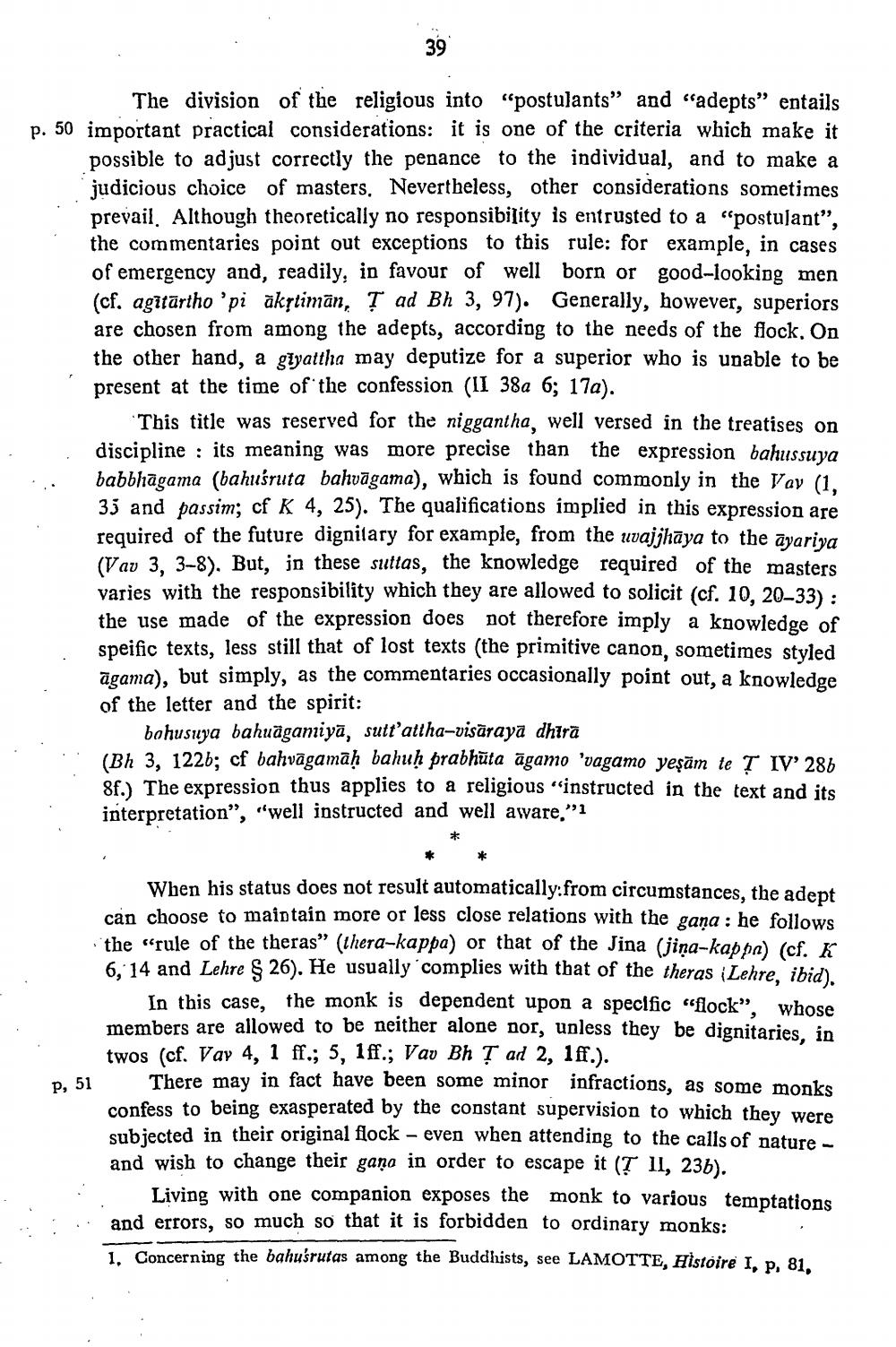________________
The division of the religious into “postulants” and “adepts” entails p. 50 important practical considerations: it is one of the criteria which make it
possible to adjust correctly the penance to the individual, and to make a judicious choice of masters. Nevertheless, other considerations sometimes prevail. Although theoretically no responsibility is entrusted to a postulant", the commentaries point out exceptions to this rule: for example, in cases of emergency and, readily, in favour of well born or good-looking men (cf. agitārtho 'pi ākstimān, ad Bh 3, 97). Generally, however, superiors are chosen from among the adepts, according to the needs of the flock, On the other hand, a giyattha may deputize for a superior who is unable to be present at the time of the confession (II 38a 6; 17a).
This title was reserved for the niggantha, well versed in the treatises on discipline : its meaning was more precise than the expression bahussuya babbhāgama (bahuśruta bahvāgama), which is found commonly in the Vay (1. 35 and passim; cf K 4, 25). The qualifications implied in this expression are required of the future dignitary for example, from the uvajjhāya to the āyariya (V av 3. 3-8). But, in these suttas, the knowledge required of the masters varies with the responsibility which they are allowed to solicit (cf. 10, 20-33) : the use made of the expression does not therefore imply a knowledge of speific texts, less still that of lost texts (the primitive canon, sometimes styled agama). but simply, as the commentaries occasionally point out, a knowledge of the letter and the spirit:
bohusuya bahuäganiya, sutt'attha-visāraya dhira (Bh 3, 122b; cf bahvāgamaḥ bahuḥ prabhūta āgamo 'vagamo yeşām te T IV 286 8f.) The expression thus applies to a religious instructed in the text and its interpretation", "well instructed and well aware."'1
*
*
When his status does not result automatically from circumstances, the adept can choose to maintain more or less close relations with the gana: he follows the rule of the theras" (thera-kappa) or that of the Jina (jina-kappa) (cf. K 6, 14 and Lehre § 26). He usually complies with that of the theras (Lehre, ibid).
In this case, the monk is dependent upon a specific cflock”. whose members are allowed to be neither alone nor, unless they be dignitaries, in twos (cf. Vay 4, 1 ff.; 5, 1ff.; Vav Bh Ț ad 2, 1ff.).
There may in fact have been some minor infractions, as some monks confess to being exasperated by the constant supervision to which they were subiected in their original flock - even when attending to the calls of nature - and wish to change their gana in order to escape it (T II, 236).
Living with one companion exposes the monk to various temptations 1. and errors, so much so that it is forbidden to ordinary monks:
P, 51
1. Concerning the bahuśrutas among the Buddhists, see LAMOTTE, Histoire I. P. 81.




